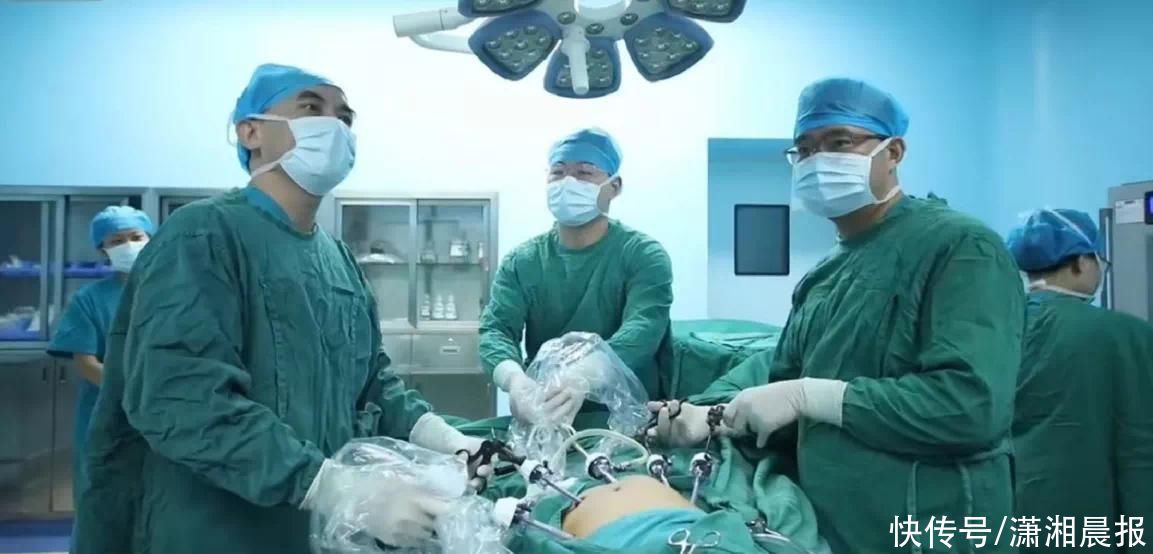Uncle Wang, 60, who lives in Kaifu District, Changsha City, has been suffering from acid reflux and heartburn for many years. He is often accompanied by hiccups, and occasionally has pain behind the breastbone. Vomiting occurs. Uncle Wang has been working in other places for many years, and he is not willing to spend more money. He buys medicines outside by himself, and he does not take medicines regularly. Once diagnosed with gastroesophageal reflux disease, seeing a doctor and taking medicine has become commonplace, but the symptoms of acid reflux, heartburn and hiccups still cannot be relieved.
Recently, Uncle Wang felt that the symptoms of acid regurgitation, heartburn, fullness and hiccups were significantly worsened. He was introduced to the Department of Gastrointestinal Surgery of Changsha First Hospital. The doctor arranged gastroscopy, gastrointestinal angiography, and CT of the chest and abdomen for him in accordance with the standard diagnosis and treatment procedures, and found that Uncle Wang turned out to be “hiatus hernia with esophageal reflux”.
Director of Gastrointestinal Surgery and Chief Physician Yang Yunquan led the surgical team to perform laparoscopic hiatal hernia repair + fundoplication for Uncle Wang. After the operation, head nurse Xiong Mingqin led the nursing team to carry out rapid recovery and personalized care. On the first day after the operation, the symptoms such as acid reflux and heartburn that had plagued Uncle Wang for many years disappeared. Less than a week after the operation, Uncle Wang was discharged from the hospital smoothly.

Yang Yunquan, Director of Gastrointestinal Surgery, introduced that the most important reason why hiatal hernia is not well known is because it is not easy to be diagnosed, instead It is easy to be misdiagnosed as other diseases.
What is a hiatal hernia? According to reports, there is a structure called the diaphragm between the thoracic cavity and the abdominal cavity. There is a hiatus on the diaphragm called the esophageal hiatus. The esophagus passes through the esophageal hiatus on the diaphragm and enters the abdominal cavity and connects to the stomach. The esophageal hiatus is normally just enough to accommodate the passage of the esophagus. But when the pressure in our abdominal cavity is greater than that in the chest cavity, causing the hiatus to become too large, the pressure difference can cause the stomach to “run” into the chest cavity, which is called a hiatal hernia.
Hiatal hernia is the most common cause of gastroesophageal reflux, that is to say, the stomach acid that originally exists in the stomach will flow back into the esophagus due to the influence of the hiatal hernia, resulting in a series of symptoms , such as acid regurgitation, heartburn, long-term hiccups, retrosternal burning sensation, retrosternal pain, inability to sleep on your back, etc., and even many extra-esophageal symptoms, such as repeated persistent pharyngitis, asthma, pneumonia and other respiratory tract symptoms Symptoms; cardiac symptoms such as arrhythmia and cardiac insufficiency; nutritional disorders such as anemia and weight loss; atypical symptoms such as stomach pain, indigestion, and constipation; repeated esophageal reflux and stimulation of the esophagus by gastric acid may increase esophageal cancer risks of.
How to prevent hiatal hernia in daily life?
1. Try to avoid eating indigestible meat foods, avoid overeating, etc.;
2. Eliminate some factors that cause increased intra-abdominal pressure, such as Patients with chronic constipation need to improve their living habits or use drugs to relieve constipation symptoms, obese patients need to control their weight, and patients with benign prostatic hyperplasia need oral drugs or surgery to relieve dysuria;
3. Abdominal blunt trauma The sudden increase in intra-abdominal pressure can also induce this disease. When people reach middle age, prevention should be the main thing. For some unexplained anemia, upper gastrointestinal bleeding, and pain in the precordial area, the possibility of this disease should also be considered. Check early.
Yang Yunquan once again reminded the general public that when there is long-term acid reflux, heartburn or even hiccups, they should be alert to hiatal hernia, and recommend professional gastrointestinal surgery to see a doctor to avoid delaying the disease.
Xiaoxiang Morning News reporter Mei Mei correspondent Yang Fengshuai
News clues reveal channel: Download the “Morning Video” client from the app market and enter the topic “Morning Help”; or call the morning video news hotline 0731-85571188.